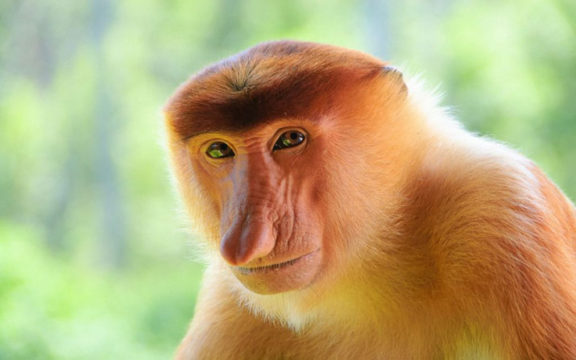Bearing an uncanny resemblance to a certain political leader of the day, Genta and Kalawa, the two male proboscis monkeys (Nasalis larvatus), who make their home at the Bali Safari and Marine Park have reddish-brown and well-styled hair set against a pronounced nose.
Forming part of the primate collection at the Park, Genta and Kalawa have two female companions, Safira and Agustin. Native to the Indonesian Island of Kalimantan and considered endangered, the Proboscis monkeys, known in Indonesia as Bakantan, are a very large arboreal old-world primate.
Males, who are generally larger than females, can grow to 76 centimeters and weigh as much as 30 kilograms.
Distinguished by a large, drooping nose on the male’s face that can be up to four inches long. The fur on the back of the Proboscis can be bright orange, reddish-brown, yellowish-brown, or brick-red. This species is set apart by their large pot-bellies, made so by a steady diet of mangrove leaves.
As reported by NusaBali, the general manager of the Bali Safari Park, Thomas Colbert, explained that the Nasalis larvatus orientalis live in trees found in Kalimantan’s mangroves, swamps, and beachside forests.
The Proboscis was selected as the mascot of Kalimantan by the South Kalimantan Governor in 1990. Endangered in the wild due to habitat decimation, The Bali Safari Marine Park is working to propagate its captive collection.
Visitors to the Bali Safari Marine Park can view the four members of the Proboscis family resident in Bali at a specially designed and spacious exhibit replete with trees for climbing and a pool for play and swimming where the primate’s webbed feet and a natural “nose cover” come in particularly handy.
These powerful and large monkeys can be seen leaping from tree to tree or swinging from their strong arms from a horizontal branch. Hot days will find the four primates enjoying their private pool in the Park home.
Related Site
